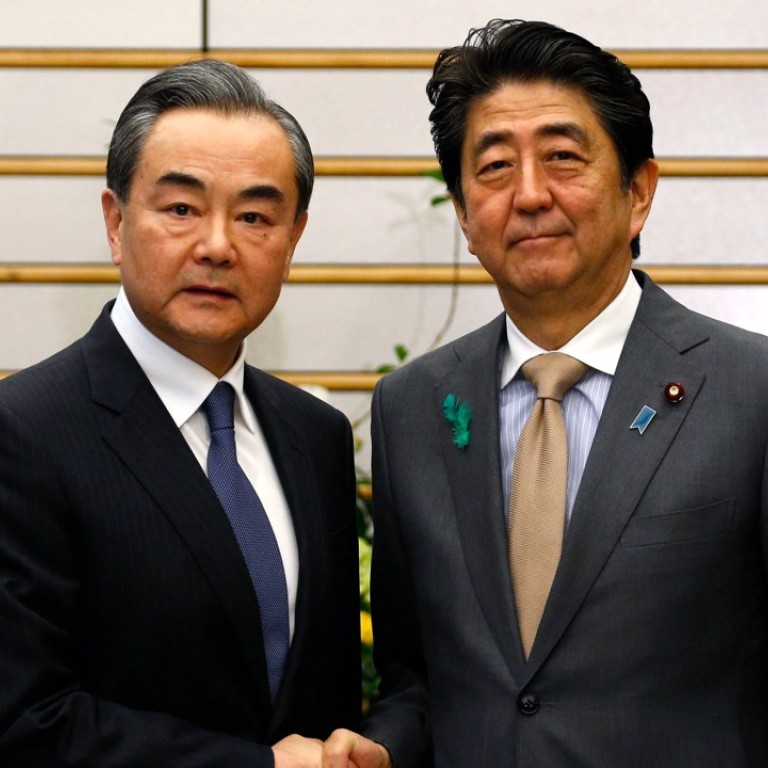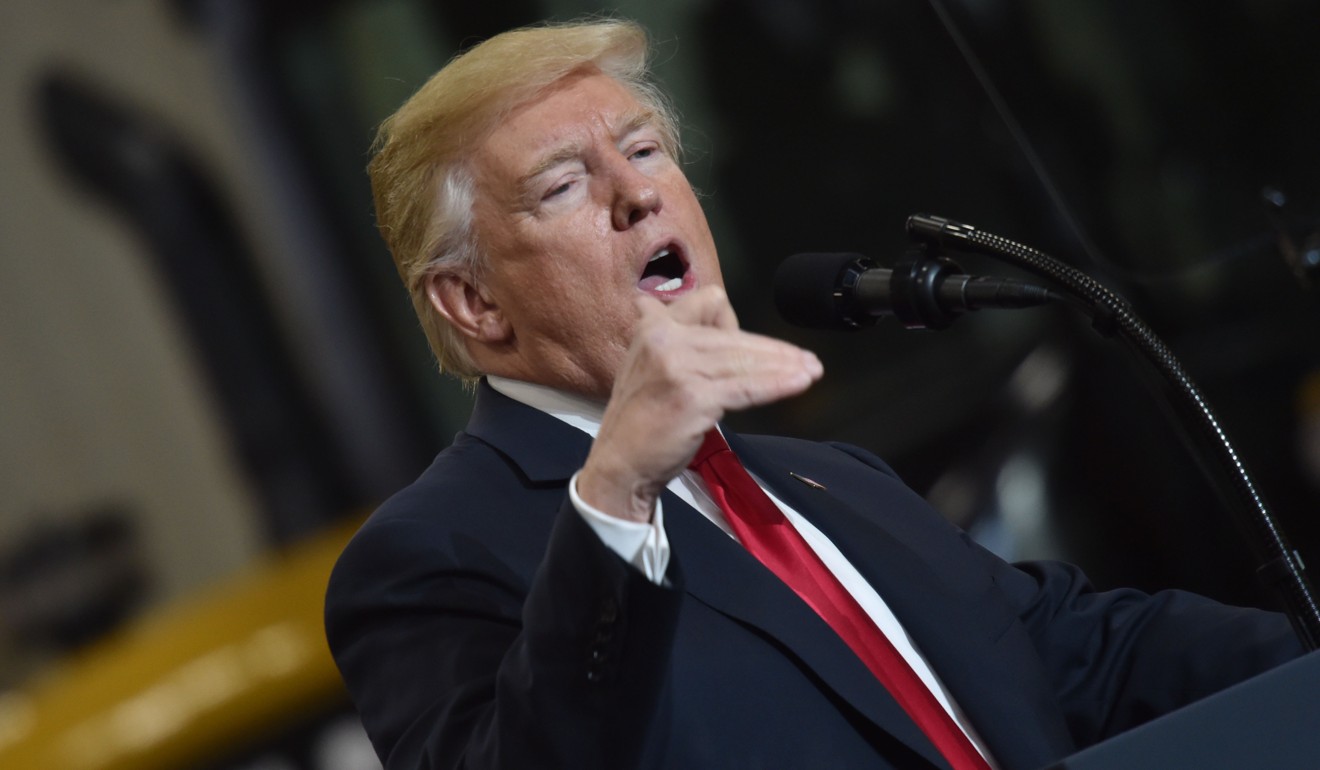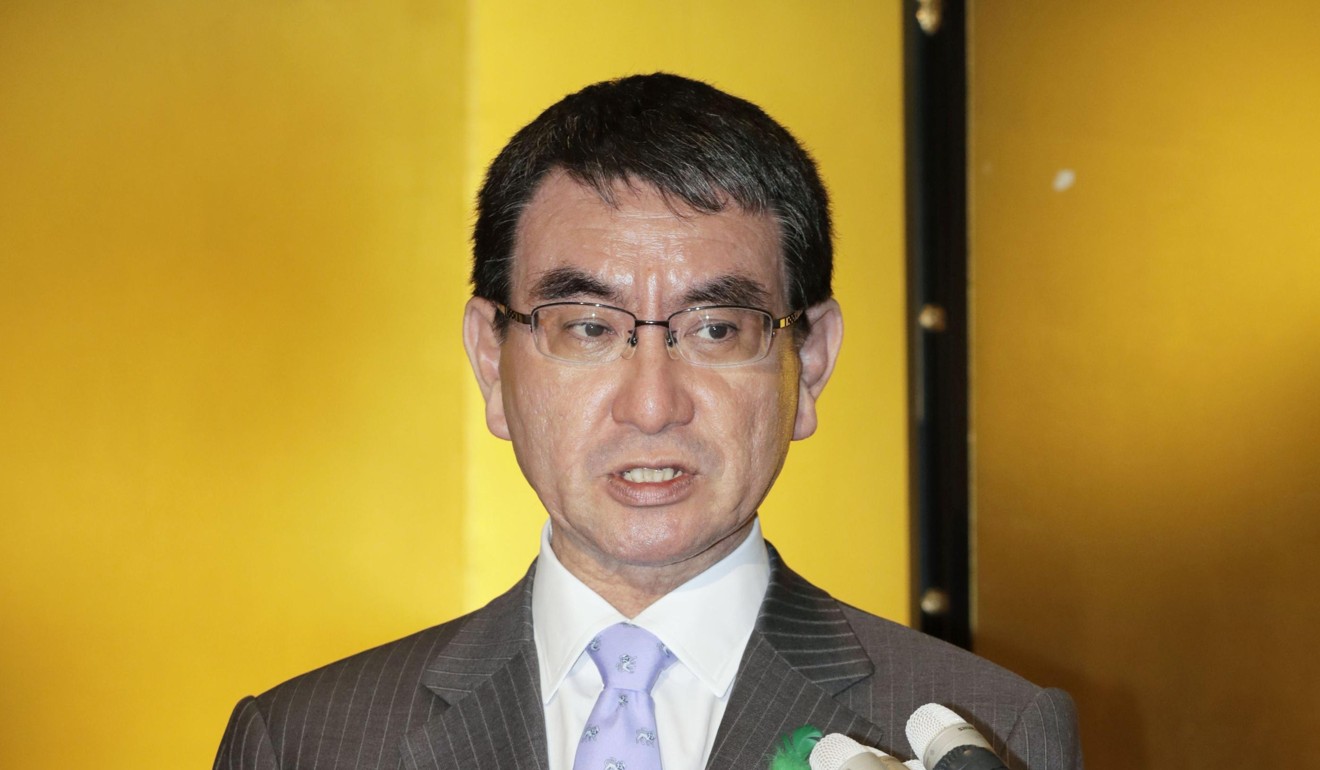
Japan and China try to reset relations in shadow of Trump’s trade war threat
Xi Jinping and Shinzo Abe plan reciprocal visits after senior officials hold first high-level talks in eight years
China and Japan have promised to reset their often frosty bilateral relationship as they kicked off their first high-level economic talks in eight years on Monday.
The two nations also warned of the impact of a trade war on the global economy and agreed that Japanese Prime Minister Shinzo Abe would visit China, with President Xi Jinping making a reciprocal visit.
The two sides expressed their hopes of improving their relationship after China’s Foreign Minister Wang Yi met senior officials in Tokyo.
Abe told Wang that he hoped a visit to Japan by Premier Li Keqiang next month would be an “opportunity for us to develop Japan-China ties in various fields in a mutually beneficial strategic relationship”.
In response, Wang said that the two nations needed to drive forward the process of improving ties from a long-term standpoint.
Both Abe and Wang affirmed the importance of Japan and China making the East China Sea – where they have a bitter sovereignty dispute – a “sea of peace, cooperation and friendship”, according to the Japanese Foreign Ministry.
Wang said his trip was an important step in putting the relations on a normal track, adding that China valued the positive stance of Japan towards the Belt and Road Initiative.
He also called on both nations to handle sensitive issues properly, and to see each other as cooperative partners rather than a threat, according to a Chinese Foreign Ministry statement.
Wang’s trip came as both China and Japan have come under fire from US President Donald Trump over trade and have been hit with tariffs on steel and aluminium.
Concern is mounting that the dispute between China and the US may escalate to become a full-scale trade war with both threatening to impose tariffs on each other’s exports.
Wang and his Japanese counterpart Taro Kono agreed that the open trade system should be maintained.
“We share the recognition that bringing on a trade war would have a huge impact on the prosperity of the global economy,” Kono told reporters.
Wang told Kono that both countries should jointly oppose trade protectionism, safeguard multilateral trade systems and promote an open world economy.
The two nations’ finance ministers Taro Aso and Liu Kun also agreed on the importance of multilateral free trade in a separate meeting, Japanese government officials said, but there was no direct reference to Trump.
Abe is scheduled to meet the US President at a two-day meeting at Trump’s Mar-a-Lago resort in Florida on Tuesday, during which trade issues are expected to be a key item on the agenda.

The relationship between China and Japan has often been fraught because of their disputes over the Diaoyu Islands, known as the Senkaku Islands in Japan, and grievances over Japan’s actions in the Second World War.
Wang is the first Chinese foreign minister to visit Japan in a bilateral context since 2009.
Kono said it was possible that Japan would work with China on belt and road projects – a key initiative of Xi that has triggered suspicions of Beijing’s extending its geopolitical influence abroad.
Kono said Japan’s cooperation would be on a “case-by-case basis where international standards are met”.
Victor Teo, an assistant professor at the University of Hong Kong and academic associate at the Harvard programme on US-Japan relations, said that the relationship between China and Japan has reached a turning point, as both Abe and Xi have consolidated their power in domestic politics.
“They both have more confidence and experience to tackle really difficult issues now more than before,” he said.
“Given the uncertainty in the region owning to President Trump’s policies and the challenges posed by North Korea, both countries seek to improve their relations so as to be able to concentrate on these challenges and, at the same time, lay the basis for possible cooperation to face these challenges.”
He also said Trump’s agreement to meet the North Korean leader Kim Jong-un had sidestepped Abe and “cut him off at his knees”.

Abe’s position on North Korea, including his insistence on opening discussion about the abductions of Japanese citizens at the coming meeting with Trump, has increased the likelihood that it be left out of the delicate negotiations,
“Pyongyang considers the issue to be over, but if Abe, who partly made his name by championing this cause, makes the issue a precondition for achieving progress in ties with North Korea, Japan is likely to be left out in the cold” said Brad Williams, a professor of international relations at City University of Hong Kong.
But he said the improving relations between China and Japan still face a number of fundamental challenges.
“I think any warming of ties between the two countries is extremely fragile as long as fundamental issues relating to Chinese historical grievances and contested sovereignty over the Diaoyu/Senkaku Islands remain unresolved. I think the main factors driving this ostensible rapprochement is Kim Jong-un’s deft diplomacy and uncertainty surrounding US actions under Trump.”
Additional reporting by Kyodo and Reuters

